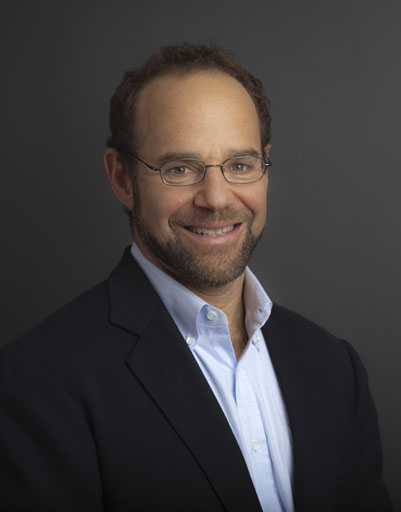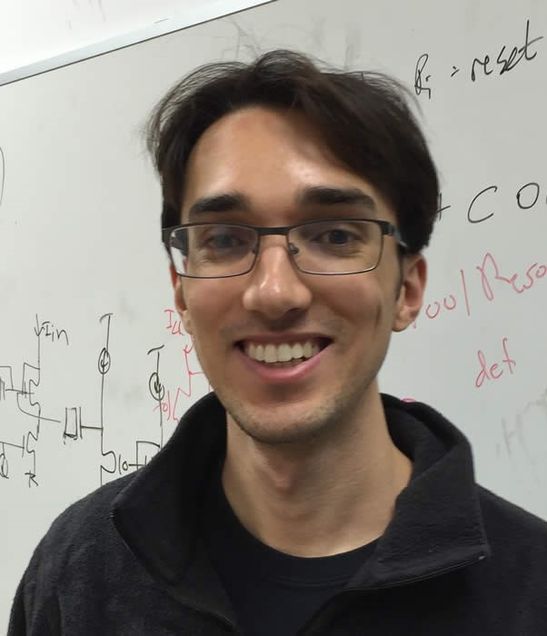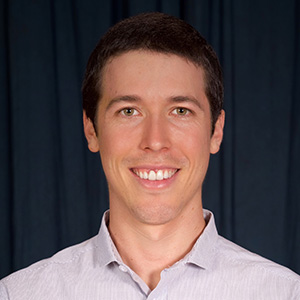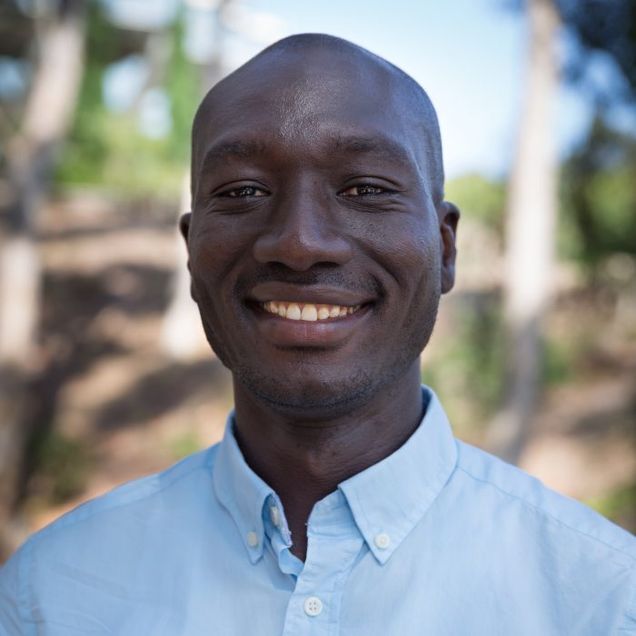Three Awarded Career Development Professorships
Three assistant professors have earned professorships that recognize future leaders in their fields, Boston University Provost Jean Morrison has announced. Abdoulaye Ndao was named the next Reidy Family Career Development Professor, while Eshed Ohn-Bar and Ashok Cutkosky each garnered a Peter J. Levine Career Development Professorship.
The Reidy and Levine professorships are two of the six Career Development Professorships that BU offers to certain junior faculty noted for significant potential in their disciplines. A three-year stipend supports research, scholarship and creative work, as well as a portion of the recipients’ salaries.
“These awards highlight the excellence of our ECE department, and the talent and potential of these three outstanding faculty,” said College of Engineering Dean Kenneth R. Lutchen. “They can serve as springboards to propel the careers of these junior faculty to great achievements.”

Peter J. Levine (ENG’83) created the Peter J. Levine Career Development Professorship to help recruit and develop top-notch junior faculty at the College of Engineering. A general partner at Silicon Valley venture capital firm Andreesen Horowitz, Levine is a former BU trustee and a current member of the ENG Dean’s Leadership Advisory Board.
“The Peter J. Levine Career Development Professorship honors creative and exciting new assistant professors in ECE, particularly in the area of information science and technology, and those adjectives certainly apply to both Eshed Ohn-Bar and Ashok Cutkosky,” says Professor W. Clem Karl, ECE chair. “Eshed’s research is focused on machine learning for autonomous systems such as self-driving cars that learn by watching other cars. Ashok comes to BU from Google, and is focused on machine learning algorithms that can avoid the problems of manual tuning.”

Cutkosky, who also has an appointment in Systems Engineering, joined BU in July 2020 after two years as a research scientist at Google Research in Mountain View, California. His research in hyperparameter tuning is aimed at developing algorithms that take the guesswork out of building and training machine learning models. Cutkosky earned his PhD in computer science from Stanford University.
“It was an extremely pleasant surprise,” says Cutkosky of learning he had been named a Levine professor. “I plan to use the award to support some students, because a lot of my work is very mathematical, so hiring students to help with that will free me up to spend time training machine learning models, and also work on algorithms that maintain privacy in the data sets.”
Ohn-Bar joined BU last year after two years as a Humboldt Research Fellow at the Max Planck Institute for Intelligent Systems. He earned his PhD in electrical engineering from the University of California at San Diego. In his research, he seeks to develop societal-scale intelligent systems with seamless real-world interaction. Examples include safety applications for autonomous driving and assisted navigation for people with visual impairments.

“This is a difficult interdisciplinary task, primarily because the decision-making must safely account for interactions with real-world humans, who have diverse behaviors and preferences,” says Ohn-Bar. “The Peter J. Levine Career Development Professorship Award gives me the additional resources required to pursue this bold and socially impactful research. I plan to use the award to ensure that our research results in broadly applicable real-world assistive and autonomous technologies.”
“The Reidy Family Career Development Professorship recognizes the outstanding record and significant scholarly potential of Abdoulaye Ndao, and I could not agree more,” says Karl. “Abdoulaye has made ground-breaking contributions in the development of topological light sources, metamaterials, and sensors based on lithium niobate.”

Focusing on light-matter interactions at the nanometer scale, Ndao’s work has implications for digital imaging and medical diagnostics. He joined BU in July 2020, after doing postdoctoral work at UC–Berkeley and UC–San Diego. Ndao earned his PhD in physics from the University of Franche-Comté in France.

The professorship is supported by a gift from Richard Reidy (Questrom’82) and his wife Minda Reidy (Questrom’82, ’84). The couple created the professorship as a way to attract and retain the best faculty at ENG as well as the Questrom School of Business. Richard Reidy was president and CEO of Progress Software Corp. and is now principal partner of StratusPointIT. He is vice chair of the BU Board of Trustees and a member emeritus of the ENG Dean’s Leadership Advisory Board.
“This prestigious award will give visibility to my research and provide funds for equipment,” says Ndao. “It speaks to how well my work is perceived in the department” and beyond, he added. “This award is an extrinsic incentive and will serve as an additional motivator.”
“All three of these outstanding new assistant professors build on our current strengths in photonics and AI,” says Karl. “Their generous Career Development Professorships are well deserved acknowledgements of their potential, and support for their future success.”